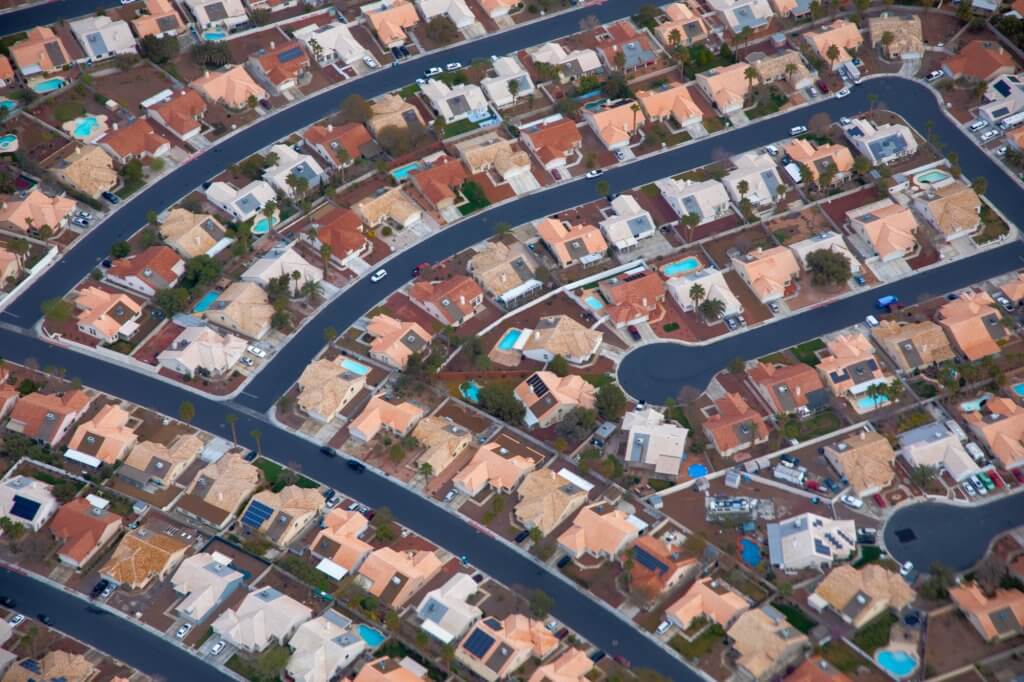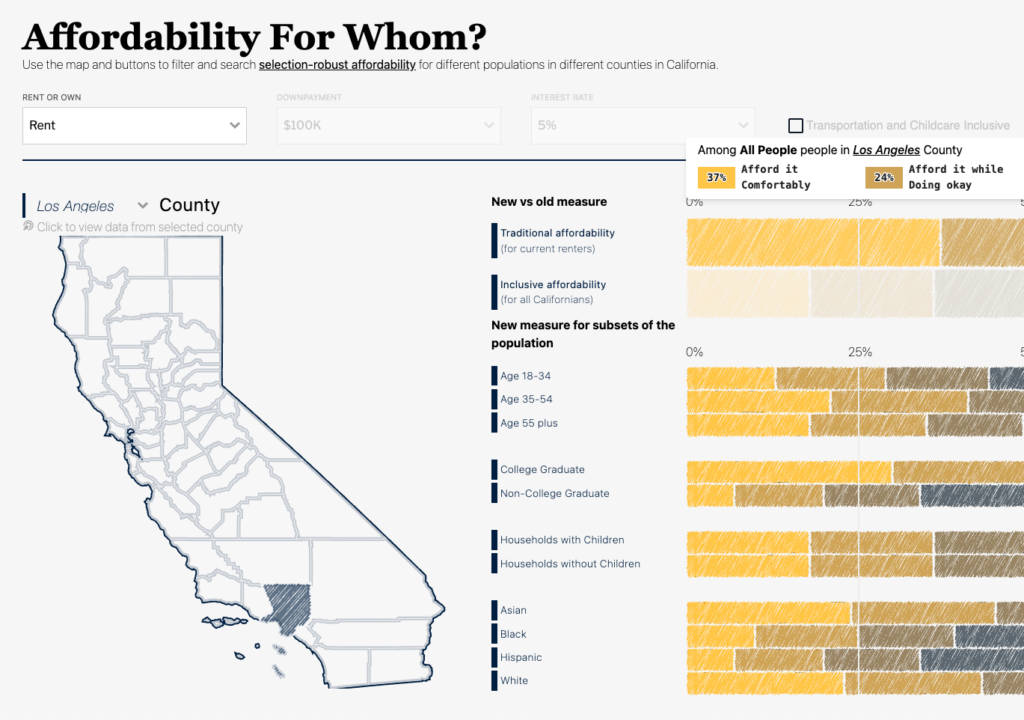2023 California Housing Legislative Round Up
Published On October 9, 2023
On September 14th, the California Legislature wrapped up the first year of a two-year legislative session, with several dozen housing bills sent to the Governor’s desk for his signature. Drawing the most public attention was Senate Bill (SB) 423 (Wiener), which would extend and expand Senator Wiener’s 2017 housing streamlining law, SB 35. Legislation was also passed aiming to curtail the use of the California Environmental Quality Act (CEQA) to stop or delay new housing construction on the basis of new residents’ actions being classified as “pollution” and impactful to the environment. In addition, the legislature passed a number of bills authorizing statewide ballot measures related to housing, potentially giving California voters a chance to weigh in at the ballot box in 2024. There were also several bills that received less attention that, if passed, will create meaningful changes on topics such as accessory dwelling units (ADUs), state density bonus law, and tenant protections. The Governor has until October 14th to sign, veto, or passively allow the law to go into effect without his endorsement.
This commentary briefly summarizes key bills that passed the legislature as well as key bills that may be reintroduced next year as part of a two-year session.
Efforts to Facilitate More Affordable and Moderate-Income Housing Production
The state legislature has continued its remarkable run over the last several years of providing developers of deed-restricted affordable housing ever more flexibility to exceed or override local zoning, greater certainty on the timing and likelihood of planning approvals, and substantial relief from CEQA review and litigation.
SB 4 (Wiener) streamlines affordable housing on lands owned by faith-based organizations and non-profit institutions of higher education. A recent study by the Terner Center identified approximately 171,000 acres of land across the state that may be well-positioned for affordable housing development under SB 4.
As mentioned above, SB 423 (Wiener) extends and expands the applicability of SB 35, which was passed in 2017 and was scheduled to sunset in 2026. SB 35 has facilitated the approval or application process for over 18,000 new homes between 2018 and 2021, the large majority of which are affordable housing units. SB 423 would expand applicability to the California Coastal Zone, and would create new labor standards for mixed-income projects. Building on a successful San Diego program, AB 1287 (Alvarez) modifies state Density Bonus law to allow developers to apply for a moderate-income density bonus in cases when the developer has already included the maximum number of low- or very-low income units in the proposed development. SB 684 (Caballero) facilitates the subdivision of multifamily zoned parcels of five acres or less into up to ten for-sale lots, including by relaxing CEQA requirements, expediting permitting timelines, and mandating decision-making within 60 days.
AB 1490 (Lee) incentivizes affordable housing adaptive reuse projects by mandating expedited permit approval times and lowered energy bills. AB 1449 (Alvarez & Wicks) exempts 100 percent affordable housing developments from CEQA review provided the projects meet specific criteria including adhering to labor standards.
SB 439 (Skinner) curbs the potential for lawsuits against proposed housing including under CEQA by creating a special motion to strike a challenge to the approval or permitting of an affordable housing development. Influenced by the appeals court decision that the University of California at Berkeley failed to consider noise generated by students and visitors as an environmental impact and thus halting proposed housing development on People’s Park, AB 1307 (Wicks) stipulates that the impacts of noise generated by students and visitors are not significant environmental impacts. While the specific People’s Park case will still go to the California Supreme Court for review, this bill will further alleviate public universities’ obligation to explore alternative project locations in environmental impact reports if specified requirements are met.
SB 469 (Allen) reforms Article 34, a provision in the California Constitution that was authorized by the voters in 1954 to limit the creation of new affordable housing by mandating that a local election be held to approve new publicly-funded affordable housing. The law aims to increase the number of projects that can bypass voter approval, as long as the affordable housing development includes certain types of departmental funding or tax credits aimed at creating affordable housing.
Legislation to Enhance Enforcement of State Housing Laws
Several bills enhance or clarify enforcement authority of different state housing laws. AB 1633 (Ting) amends the Housing Accountability Act to clarify that it is a violation for a local jurisdiction to deny or withhold an environmental clearance to which an urban infill housing development is entitled without substantial evidence justifying additional environmental study. AB 434 (Grayson) reduces the California Department of Housing and Community Development (HCD)’s review period for locally approved housing elements or amendments from 90 days to 60 days. And it provides HCD with express authority to enforce housing statutes including: SB 6 (2022), SB 9 (2022), AB 1218 (2023), SB 4 (2023), and SB 684 (2023). AB 1485 (Haney) would expand the authorities of both HCD and the office of the Attorney General to have the unconditional right to represent the state in any legal action addressing a violation of specified housing laws by local governments.1
AB 821 (Grayson) creates a notification process and time limit of 180 days for jurisdictions to align their zoning code with the land use element of the general plan when there is a live project application. The bill would also build on existing law that applies to projects that are at least two-thirds residential, to allow mixed-use and other projects to proceed if the city’s zoning code is inconsistent with its housing element. AB 281 (Grayson) stipulates that special districts (e.g., sewer, water, and power utilities) conform to certain timeframes, analogous to those set for cities and counties, for the review of post-entitlement permit applications from housing developers. SB 567 (Durazo) strengthens protections established in AB 1482 (2019) for renters facing evictions for renovations or landlord move-in. Last year, the Terner Center explored the challenges of tracking data on rents and evictions in California.
Additional Notable Bills
The legislature has passed additional bills aiming to enhance housing affordability and availability, covering areas such as studying different housing systems, land usage, parking reforms, and tax exemptions for affordable housing.
SB 555 (Wahab) mandates that HCD undertake a study on social housing and how it could help local housing supply. AB 835 (Lee) instructs the California State Fire Marshal to explore and formulate standards for single-exit, single stairway apartment houses in buildings exceeding three stories in order to reduce costs otherwise associated with construction of multiple staircases.
AB 84 (Ward) improves access to the welfare property tax exemption for affordable housing developments that utilize 501(c)3 bonds, including by allowing such a property to continue to receive the welfare exemption when a household’s income increases following initial occupancy, up to a maximum of 100 percent of the area median income. AB 1085 (Maienschein) would require the Department of Health Care Services to add certain housing support services as an eligible Medi-Cal benefit. AB 12 (Haney) would limit allowable security deposit requirements for certain apartments to a maximum of one month’s rent.
The legislature also passed legislation that builds on statewide parking reform, an issue found to increase the cost to build housing by up to $36,000 per unit. AB 894 (Friedman) would require agencies to allow property owners to share underutilized parking and to count such shared parking toward meeting local parking requirements. AB 1317 (Wendy Carrillo) requires owners to unbundle parking from the price of rent in certain residential properties.
AB 1332 (Juan Carrillo) requires that local governments create pre-approved plans or provide private entity lists of pre-approved designs for ADUs, replicating a best practice currently employed only in a few California cities and counties.
AB 976 (Ting) permanently disallows owner occupancy requirements on ADUs. AB 1033 (Ting) grants authorization to local governments to allow ADUs to be sold separately from the primary residence, allowing ADUs in California to become an option for entry-level homeownership opportunities.
Looking Ahead to 2024
This coming March, California voters will have the opportunity to vote on the Behavioral Health Services Act Bond (AB 531 Irwin, SB 326 Eggman), a $6.38 billion bond to fund new mental health treatment and permanent supportive housing units. The bond would be funded as an allocation from ongoing income tax proceeds from the Mental Health Services’ “millionaire’s’ tax”, passed in 2004.
In November 2024, voters will decide on at least two housing-related ballot propositions set forward by the legislature. ACA 1 (Aguiar Curry) seeks to make it easier for local governments to impose taxes to fund certain housing and transportation projects by lowering the threshold to approve special taxes and bonds from two-thirds to 55 percent. SCA 2 (Allen) would repeal Article 34, an amendment to the state constitution to limit the creation of new affordable housing by mandating that a local election be held to approve new publicly-funded affordable housing.
Two proposed ballot initiatives have become two-year bills and have not yet passed the legislature. First, the Affordable Housing Bond Act of 2024 (AB 1657, Wicks) would issue $10 billion worth of general obligation bonds to fund affordable rental housing and homeownership programs. Second, the Community College Public Education Facilities Bond Act of 2024 (passed as AB 247 (Muratsuchi) and SB 28 (Glazer)) seeks to place a $14-15 billion bond to fund school facilities. The bond measure is intended to alleviate increasing impact fees that are imposed by school districts on new housing developments to pay for school facilities.
In addition, several other pieces of legislation have become two-year bills, where the author may reintroduce the bill in 2024. SB 450 (Atkins) would amend provisions of SB 9 (2022), and would require 60-day local approvals for projects proposing to subdivide single-family homes or lots. It would also disallow cities from imposing differing design standards on new units compared to the existing standards and zoning in the surrounding area. Previous Terner Center work has noted the limited uptake of SB 9 projects so far, and has pointed out opportunities to improve the law for greater usage.
AB 68 (Ward) would present new streamlining options for infill development and aims to address climate resiliency considerations in new housing developments. AB 1630 (Garcia) would prohibit denials for student housing within proximity to university campuses for zoning purposes, and SB 440 (Skinner) would empower local governments to join forces to create regional housing finance agencies to address the unique affordable housing needs in their communities. SB 7 (Blakespear) would require the regional housing needs assessment (RHNA) to include homelessness as an income category for local housing element planning purposes, and to require each city and county to develop a plan to provide housing opportunities for each person experiencing homelessness within its jurisdiction. AB 799 (Blakespear) would require the California Interagency Council on Homelessness to establish and regularly update a financing plan such that the state could end homelessness by 2035.
Conclusion
2023’s slate of new housing laws affirms the legislature’s continued interest in finding new solutions for California’s housing crisis. Since 2016, Governors Brown and Newsom have signed into law over 100 bills specific to housing, though it is not yet clear what impact these laws will have on the state’s ongoing supply, affordability, and homelessness challenges. In 2024, we are likely to see a similar level of engagement on issues of housing and homelessness. As always, the Terner Center will continue to monitor these efforts and work to inform policy conversations through our research and analysis.
Footnotes
1. These laws include the Housing Accountability Act, the Density Bonus Law, the Housing Crisis Act of 2019, and others.





